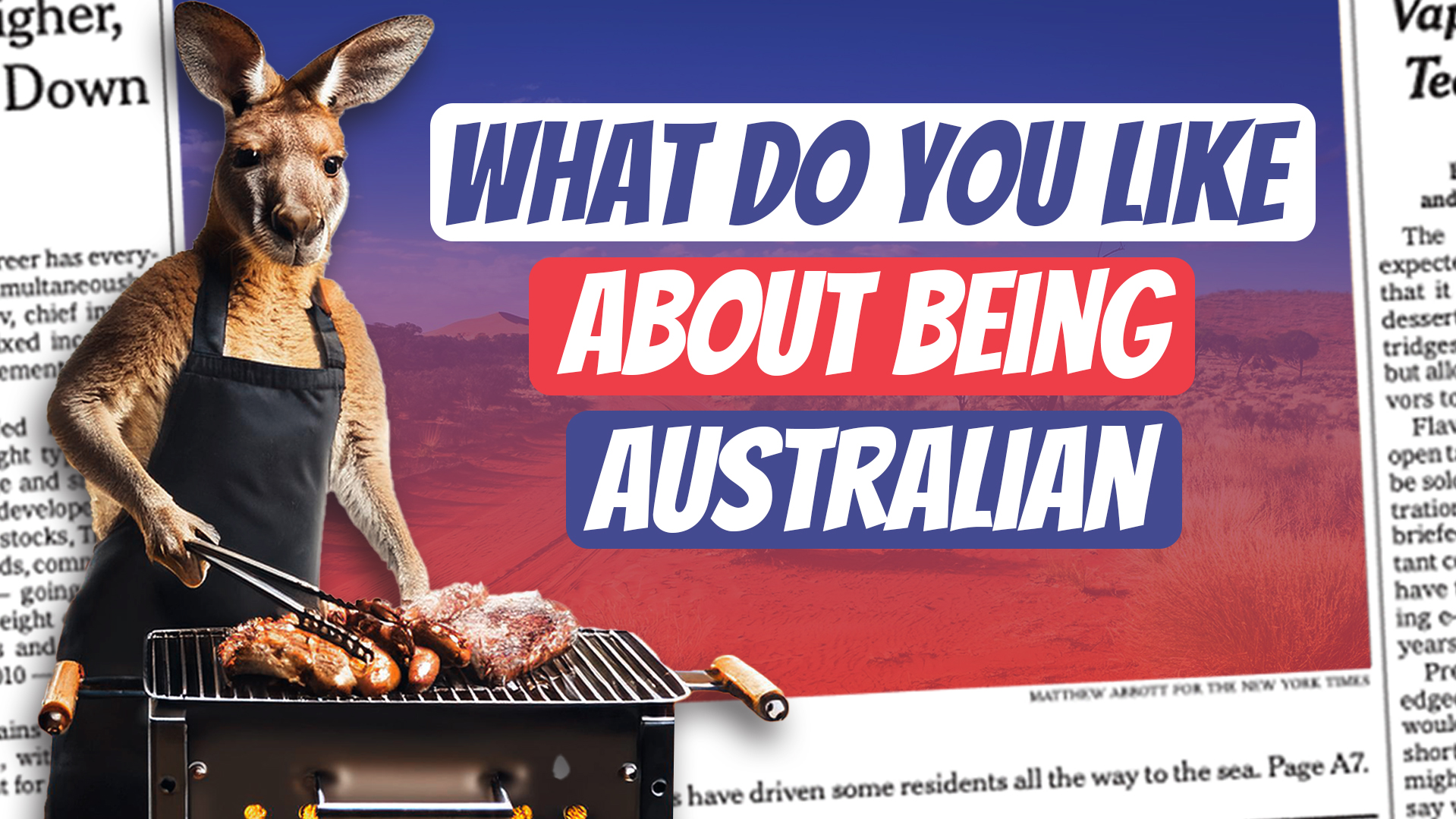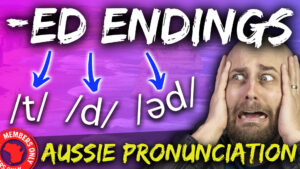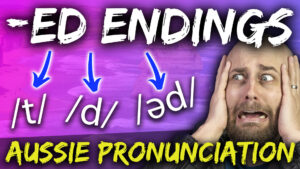
AE 1306 - The Goss
What Do You Like About Being Australian?
Learn Australian English by listening to this episode of The Goss!
These are conversations with my old man Ian Smissen for you to learn more about Australian culture, news, and current affairs.

In today's episode...
G’day, legends! Welcome back to a ripper new episode of The Goss! 🇦🇺
This week, my ol’ man Ian joins me for a chinwag about a Reddit thread r/askanaustralian that got us thinking: What DO Aussies love about being Aussie? 🤔 We dive deep into the classic Aussie quirks – from scoffing down mountains of Milo and growing up near the beach (lucky us!), to living on our own massive island continent, spreading the good word about Vegemite (don’t knock it ’til ya try it!), and soaking up the endless sunshine. ☀️
So crack open a cold one, chuck another shrimp on the barbie, and join us for a good yarn about all things Aussie! 🎧 Grab your headphones and have a listen! 🦘
** Want to wear the kookaburra shirt? **
Get yours here at https://aussieenglish.com.au/shirt
Improve your listening skills today – listen, play, & pause this episode – and start speaking like a native English speaker!
Listen to today's episode!
This is the FREE podcast player. You can fast-forward and rewind easily as well as slow down or speed up the audio to suit your level.
If you’d like to use the Premium Podcast Player as well as get the downloadable transcripts, audio files, and videos for episodes, you can get instant access by joining the Premium Podcast membership here.
Get more out of every episode!

Premium Podcast members get access to...
- All 900+ podcast episodes including member-only episodes
- Member-only episode video lessons
- Downloadable transcript PDFs & audio files for every episode

Recent Episodes:


AE 1364 – The Goss: Kati Thanda-Lake Eyre Floods & Comes to Life

AE 1363 – Pete’s 2c: How Can I Change My Accent from American to Aussie?

AE 1362 – The Goss: The Crazy Results of Australia’s Recent Election

AE 1361 – The Goss: TV Shows We’re Currently Binge Watching [Members Only]

AE 1360 – 20 English Idioms Explained | Members Only

AE 1359 – 20 English Idioms To Transcribe

AE 1358 – How to Pronounce -ED Endings in Australian English [Members Only]

AE 1357 – How to Pronounce -ED Endings in Australian English

Share

Join my 5-Day FREE English Course!
Complete this 5-day course and learn how to study effectively with podcasts in order to level up your English quickly whilst having fun!


Want to improve a specific area of your English quickly and enjoyably?
Check out my series of Aussie English Courses.
English pronunciation, use of phrasal verbs, spoken English, and listening skills!

Want to improve a specific area of your English quickly and enjoyably?
Check out my series of Aussie English Courses.
English pronunciation, use of phrasal verbs, spoken English, and listening skills!
Leave a comment below & practice your English!







Responses